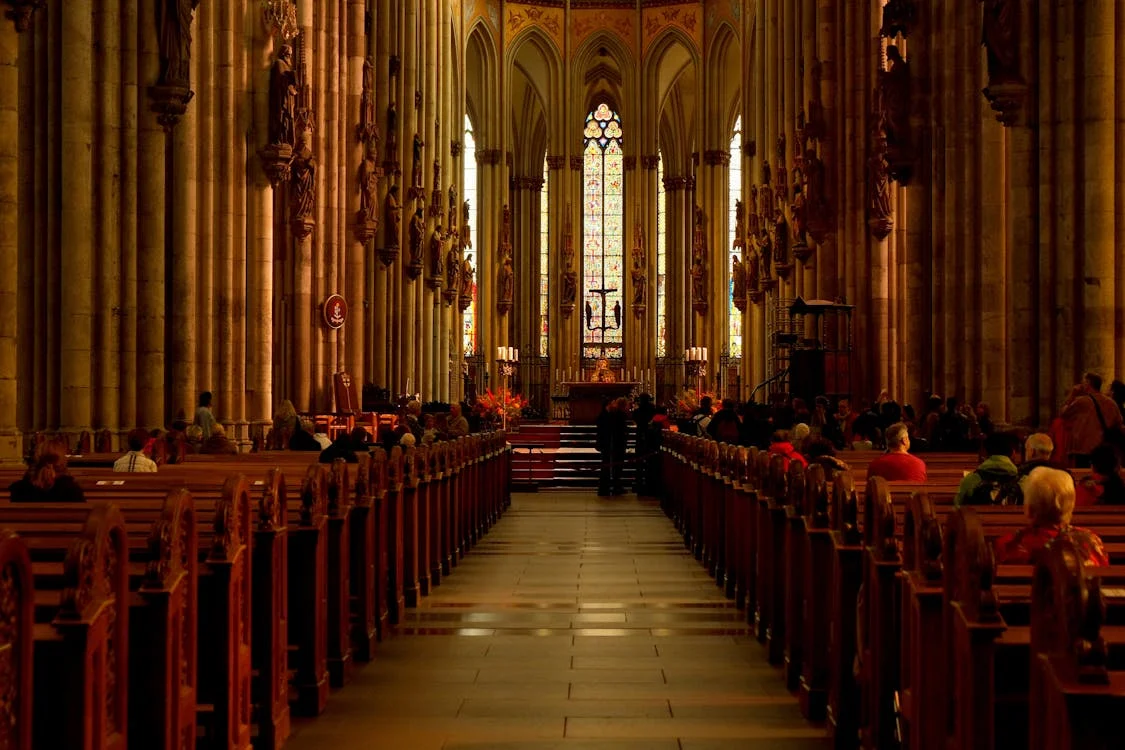Revealing Rich Religious Traditions. Abuja, Nigeria’s capital, is a cultural hub with diverse religious landscapes, featuring numerous spiritual houses for individuals of various faiths.
Abuja’s diverse religious structures, including mosques, churches, and temples, serve as cultural symbols of the city’s diversity and unity.
This article explores the harmonious coexistence of various religious traditions in Abuja, taking a tour of its renowned worship houses.
The National Mosque: A Representation of Islam
The National Mosque, also known as the Nigerian National Mosque, is a prominent architectural marvel in Abuja, showcasing the city’s Islamic heritage.
Since its inception in 1984, the mosque has been a significant prayer hub for Muslims in Abuja and its vicinity.
Grandeur in Architecture
The mosque’s architecture blends modern and traditional Islamic elements, featuring four minarets, a massive central dome, and intricate Arabic calligraphy on its walls.
The mosque, renowned for its gold-plated dome, is a grand structure that can accommodate thousands of worshippers, especially on Fridays and Islamic holidays like Eid.
A Center for Local Events
The National Mosque, a religious institution, functions as a community hub with a conference center, Islamic library, and religious school, fostering learning and discussion.
The mosque’s open-door policy welcomes all religions to attend, learn about Islam, and engage in interfaith dialogue.
The National Christian Center: A Christian Lighthouse
Revealing Rich Religious Traditions. The National Christian Center in Abuja, near the National Mosque, serves as the primary worship venue for Christians, symbolizing the harmonious coexistence of Islam and Christianity in Nigeria.
A marvel of modern architecture
The National Christian Center is renowned for its modern architecture, featuring a cruciform-shaped central tower above the metropolis.
The cathedral features stained glass windows depicting biblical scenes and a large altar serving as the central center of devotion.
A Location for Universal Prayer
The National Christian Center, an ecumenical organization, welcomes Christians of all denominations, hosting national holidays, Pentecostal worship sessions, and Catholic masses, fostering Christian solidarity.
A spiritual sanctuary in the center of power is the Aso Villa Chapel
The Aso Villa Chapel, located within the Presidential Villa, is a significant religious site in Abuja, symbolizing the nation’s faith in its leadership.
Personal Worship Sessions
The Aso Villa Chapel, despite being smaller than the National Mosque and Christian Center, holds Sunday services for the President and government leaders.
Religion significantly influences politics, as sermons and prayers often emphasize the nation’s peace and progress.
The Hindu Temple: The Center of Indian Culture and Spirituality
Abuja’s Indian community, predominantly Hindu, finds the Hindu Temple a cultural hub and place of prayer for their Hindu population.
Observing Hindu Holidays
Hindu holidays like Diwali, Holi, and Navratri involve Indian communities gathering at temples for customary prayers, music, and dance, allowing others to learn about Hindu traditions.
Encouraging Interfaith Peace
The Hindu Temple in Abuja fosters religious harmony by organizing cultural events that promote respect and understanding among people from diverse religious backgrounds.
The temple offers yoga lessons, meditation courses, and community service initiatives in addition to religious liturgy.
The Abuja Central Mosque: A Long-standing Community Mosque
Abuja Central Mosque, located in the Garki neighborhood, is a significant mosque in Abuja, valued by the local Muslim community despite its smaller size.
An Education and Worship Center
Abuja Central Mosque hosts daily prayers, Friday Jumu’ah prayers, and religious instruction, with its madrasah offering Arabic language and Quranic studies, promoting a community-focused Islamic lifestyle.
Others Asked
Which major religions are followed in Abuja?
Abuja is home to various religions, including Islam and Christianity, as well as traditional African and Hinduism, reflecting the city’s cultural diversity.
Do any interfaith projects in Abuja?
Abuja hosts interfaith programs that foster communication and understanding among diverse religious communities, often involving collaboration between religious leaders, locals, and organizations.
Can guests tour Abuja’s places of worship?
Abuja’s National Christian Center and National Mosque are popular worship sites offering guided tours to visitors, showcasing their cultural and theological significance.
What cultural effects does the multiplicity of religions have in Abuja?
Abuja’s diverse religious landscape reflects its rich cultural fabric, incorporating customs, holidays, and festivals to create a unique cultural experience.
Conclusion
Revealing Rich Religious Traditions. Abuja’s houses of worship not only showcase the city’s rich cultural heritage and ethos of unity in diversity but also serve as cultural centers.
Hallowed sites like the National Mosque, National Christian Center, and Hindu Temple serve as spiritual centers, promoting prayer and community.
Abuja’s diverse religious traditions will remain a cornerstone of its identity as the city evolves, shaping its future while preserving its rich cultural heritage.










